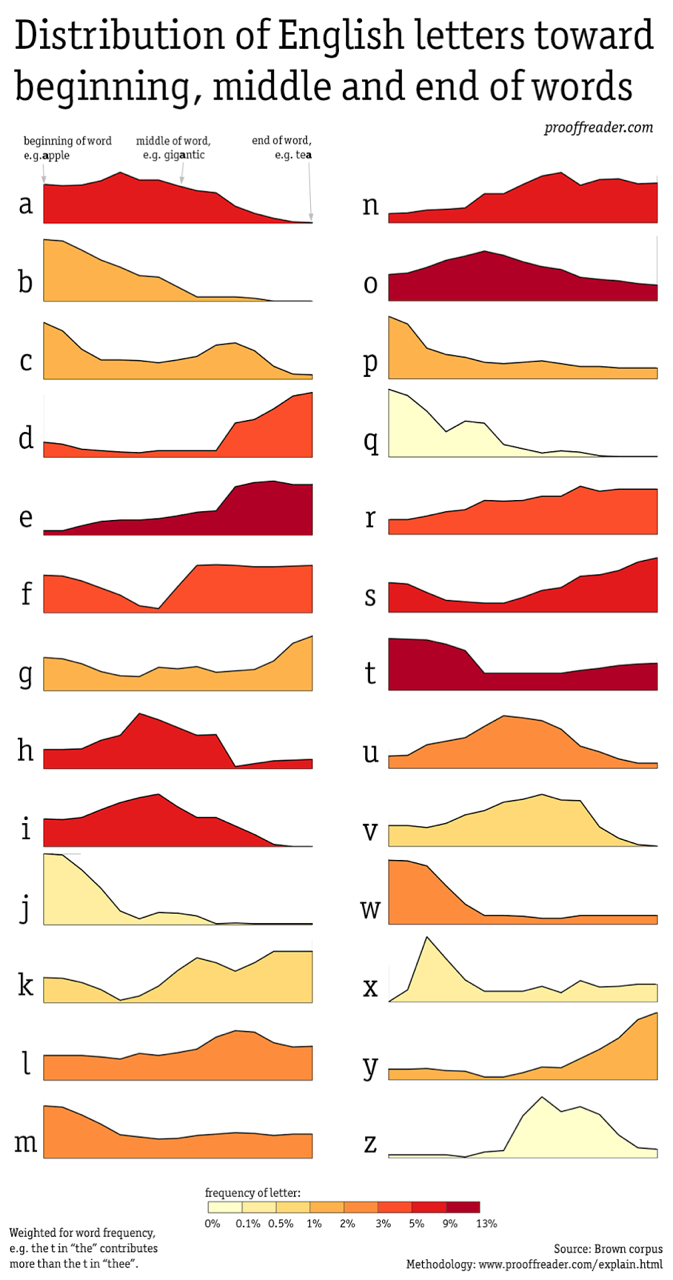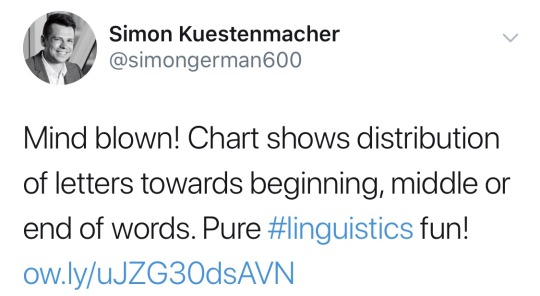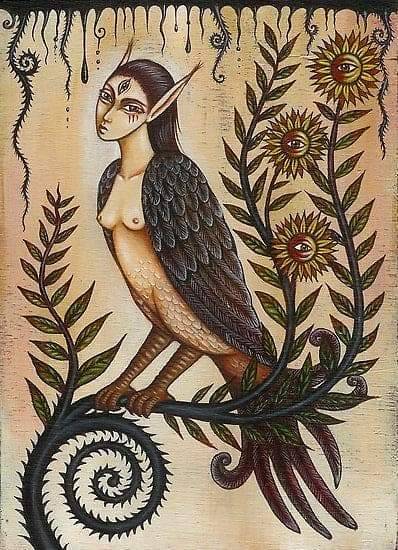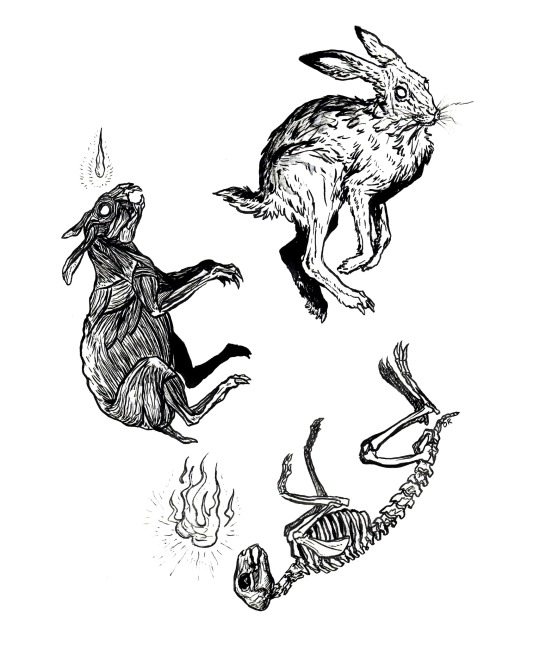Note
Hello Briar,
I mentioned once that I was beginning, again, and a portion of that has been spent reading authors like Chumbley and Schulke. I've been trying to navigate their concepts of dual-faith, Sabbatic Craft, and the like, but I'm still unsure how much of it fits within my own practice— but my practice is changing, so it's difficult to say. Now, when it comes to faith, belief, and religion you've had quite a journey, and if I'm not prying I'd like to ask: Since you have found the gods you have chosen and those that have chosen you, have your opinions on authors like Chumbley and Schulke changed?
On a related note, I do wish it was easier to find copies of sold-out books from Three Hands Press. There's one book, Hands of Apostasy, that I've been trying to read for ages, but each time I find a copy, the price is five times the original.
In any case, I hope you've been doing well and that your summer was fruitful. Best wishes to you!
Hello dearest 🌹
My opinion has not changed, per se, so much as refined. I have been able to understand such authors better with more experience, without a doubt. There is a time for everything, and spirits tend to know what you are ready for.
For instance - it had been long foreshadowed, for me, that I would work the DBOE. But a solid grasp on the way gods and spirits like to function, with this idea of masks and skin turning, certainly facilitated a number of Sabbatical concept. This grasp I could only obtain through developping myself and my magic a certain way, for a certain number of years, before coming to the Book.
Loosening one’s own spirit and rational expectations helps in the incorporation of such magic into your own devotional and magical life. These are demanding systems, these are hungry gods. Placing your trust in the spirits is probably the best advice I can give : your experience with these grimoires will not be mine, and it is fully expected. Don’t be afraid to follow your own thread, and to meet your own Minotaur.
I go into a little more details about it all in my most recent article, expounding upon what self-initiating into the Dragon Book of Essex looked like for me. Here :
Given that I just published it today, your timing with this question is quite impeccable 🐍
19 notes
·
View notes
Text
“There is a wren sitting in the branches of my spirit and it chooses not to sing. It is listening to learn its song.”
— Jack Gilbert, from “Trying to Write Poetry,” Refusing Heaven: Poems (Alfred A. Knopf, 2005)
257 notes
·
View notes
Text
🌞🔥 Solstice Squad 2022 🔥🌞
A merry celebration to all of my friends from Hagging Out ! And once again, with utmost thanks to @msgraveyarddirt / @graveyarddirt for hosting. I hope everyone had a grand time.
On my end, I did burn something on the Midsummer pyre…
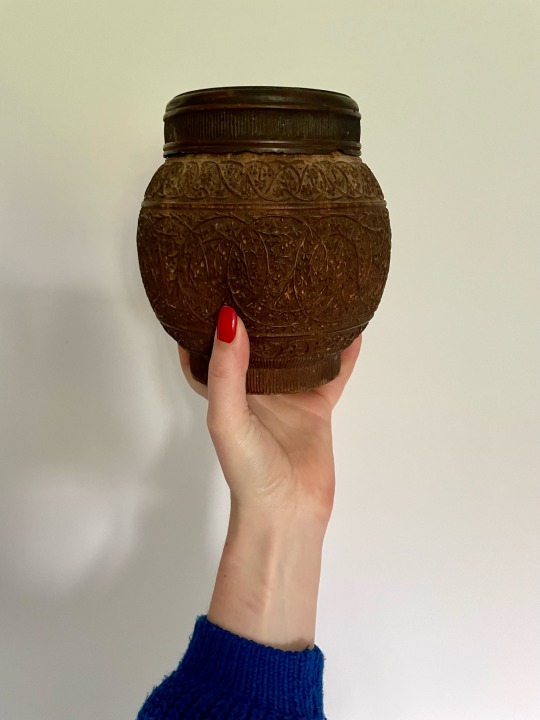
… myself.
And I shall tell the tale of how the Dragon and the Peacock-winged Seraph made me a Phoenix - soon, very soon 🦚🐍💫
51 notes
·
View notes
Text
“Serpents lay dormant, beneath this skin. Don’t dare mistake them for my veins.”
— Lillith Regina, Beneath This Skin (via: poetic-sanctum)
2K notes
·
View notes
Note
Briar—
Thank you for your incredible answer! My question was if you had found specific methods of “gender-neutralizing” the French language, but clearly, you have. So I suppose now my question centers more around the new rules for “gender-neutralizing” the French language. How fluid are they— meaning, would the expression of gender in the grammar (like when someone speaks in the first-person, or refers to someone who isn’t cisgender) vary slightly to express a specific identity, or are they more rigid? Is your approach to “gender-neutralizing” the language focused on writing/speaking/etc in a way that does not express gender, one that expresses gender-neutrality, one that changes to express more specific gender, or something else? I may be mis-stating or misunderstanding something here, but I am trying to understand it.
The reason I ask is because although I have not studied French for all that long (six or seven years I believe?), I’d like to learn to convey gender-neutrality within the structure of the language. I took a course recently on autobiographical writing in French, which involved personal essays as well; it was my first attempt to use gender-neutral language in a French language course (and also my first time using the pronoun “iel”). Most of my techniques centered around proper gender accord, or rather, intentionally creating agreement or disagreement to try to communicate (grammatically) a gender-neutral identity, or an opinion on gendered language or society’s perception of gender. My teacher encouraged this, but for me as a non-native speaker, I wonder how or if these somewhat arbitrary, somewhat personal decisions could be applied to the concept “gender-neutralizing” the language, because I’m not interested in the topic at only a personal level. The class you taught sounds incredible, and I hope I’ll have the chance to take a course like that someday! Also, knowing the term écriture épicène is incredibly helpful for researching more.
If you can answer any of this without getting too close to your personal life, I’d love to hear more. Thank you again for this response, it was lovely to read!
Hello Briar,
Would you be willing to answer a question about your thoughts on gender and the French language, more specifically about gender expression and manipulating the language? I would just ask the question, but it isn't related to your blog and it could also be something you don't feel like sharing or don't have much to say on.
In any case, I hope you've had a lovely day and that you have an interesting book (or two) to read. I recently got one on star names, but it's proving to be less of the comprehensive guide it claimed to be and more of a list of jumping-off points for further inquiry— we'll see where it ends up.
I’ll take it, because as it happens you struck a nerve here darling - ask away !
So I cannot really delve a lot into it too much, because it’s too close to my personal life… but let’s just say that one year, in one of the UK’s most prestigious universities, I taught French grammar and spent an entire semester debunking French rules about gender accords for my students. I did so to build their confidence - joking that the chances of any non-French native to getting the proper accord right off the bar for the first time of use, were of exactly 50%, which is not bad at all, coming to think of it ! I demonstrated, for them, how arbitrary grammatical rules can be (logical does not ever mean « no other way »), and so we progressed from there to how arbitrarily convenient it was, in fact, that these grammatical rules about gender were - who knew ?! - in service of the reinforcement of an overall profoundly outdated, sexist and heteronormative worldview. I taught them that language is a political tool, and not just a mean of expression. To never make the mistake to think that words can be trusted and never questioned. And then I introduced them to écriture épicène (neutral writing in French) - which was, at the time, revolutionary, and employed only in specialist circles. So I’d say that I am fairly involved with the practice, and that I’m generally speaking all for bending and twisting the fuck out of the Académie Française’s monopoly over gender in the French language, to make up our (much needed) own rules, new rules. In fact I advocated for it in my PhD, and to make a demonstration and performance of it, wrote the text entirely in the neutral gender. No « il » nor « elle » when it wasn’t absolutely necessary for reading comprehension, no winning masculine pluralization, and all kind of new pronouns and words. Because the truth of the matter is that grammar will bend to the will and common use of the people whose language it structures, obeying the majority. French is complicated to « gender-neutralize » (ha !), because, to do it properly, one would have to go back to our Latin roots and reshape our blending of déclinaisons and their evolution entirely - to say nothing of the rest. It’s an impossible task (it always is or seems an impossible task to offer a counterpoint to the norm) - which is why it is so vitally important to do so.
#hillsarehollow#french language#on gender#feel free to send a message if you'd rather not respond publicly#although i know i am just a stranger on the internet
19 notes
·
View notes
Note
Dear Briar, have you read recently any interesting books? Any recommendations?
Recently no, much of my readings were regrettably light, decidedly not life-changing or soul-elevating. Sometimes art just for the sake of entertainment is enough, but I am becoming capricious.
As for a recommendation, let’s see… I am consulting my library, and I have two for you :
1) Staying Alive: Real Poems for Unreal Times (I know, I’m late with this one, but good gods what a sincerely incredible anthology. I have gifted it twice already.)
2) Ancient Manners, also known as Aphrodite by Pierre Louÿs : a bizarre novel that reads like a tale, and who kept me up enough that I read it all in one heartbeat. Decadent, beautiful, sad.
(Stay away from Sylvia Plath.)
29 notes
·
View notes
Photo
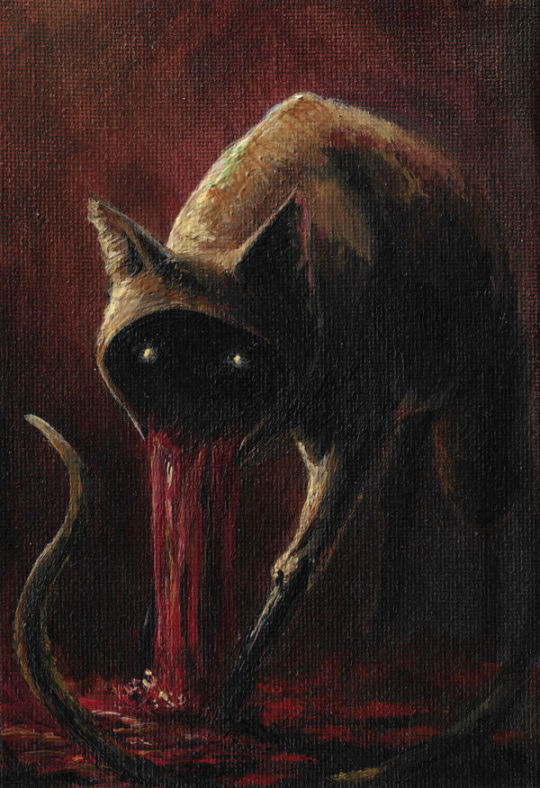
River Guardian by Beardfacay
This artist on Instagram
2K notes
·
View notes
Text
One has to develop a secure enough sense of self that it can withstand interaction with ethically or ideologically questionable material, and bear its general presence. Security develops in introspection, in allowing oneself one's own impurity, and in contact.
71 notes
·
View notes
Photo
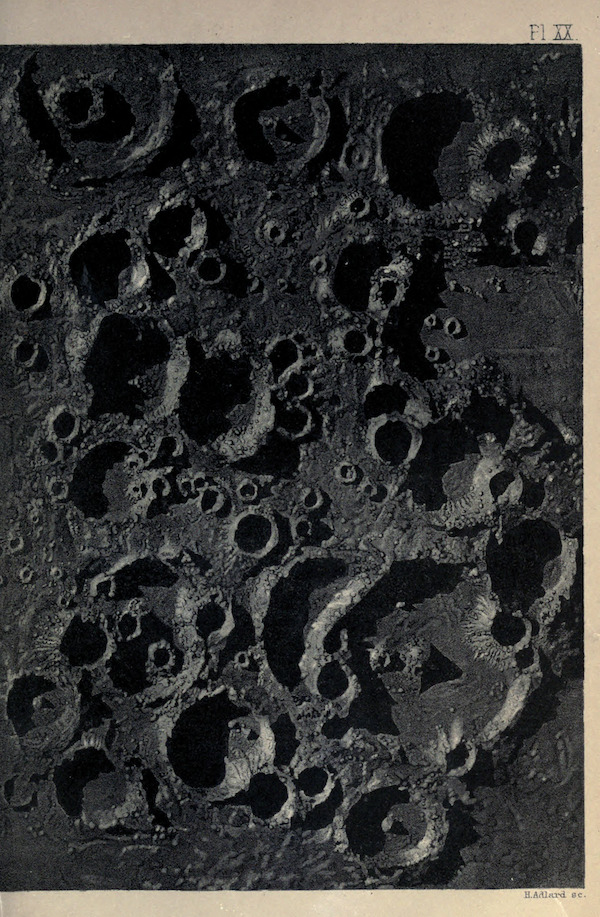
Plate XX. Texture. The moon: her motions, aspect, scenery, and physical condition. 1876.
1K notes
·
View notes
Note
Everyone has heard of reddening the bones and it’s made quite a come-back for familiar spirits in the witch community. However, I have heard of blackening the bones but can’t find any info on it anywhere. Can you shed some light on this topic?
As always, traditions will vary on this, but I can speak on it a little.
Reddening and Blackening are similar. They are…sibling practices, I would say. Reddening is about life, intrinsically. It is a necromantic practice about healing and restoration of spirit, and bonding with said spirit. It is highly spiritually and sometimes painful.
Blackening is similar, a process of coloring and decorating bones, though with black substances instead of red. However, beyond just color, it is a different spiritual process. While you are healing and restoring the soul, it isn’t about life, but rather honouring the death, and connecting with that energy. In Reddening you are giving some of your energy to restore some semblance or spark to the spirit. In blackening, you are instead taking on some of the death into yourself to make that connection. Similar, but very different.
461 notes
·
View notes
Text
Here's my secret: I got good at spirit-work and deity-work not because I'm gifted, but because I made mistakes and had to learn from them.
Some mistakes I've made:
Falling in love with a spirit and idealizing them to the point where they got weirded out and left.
Projecting my traumas/emotions onto deities.
Assuming a deity's personality before I've even met them.
Characterizing deities in ways they didn't like.
Foregoing my own experiences with deities in favor of how other people experienced them.
Trying to get to know a deity by vicariously living through other people's UPGs. (This really doesn't work.)
Relying on other people to facilitate my understanding of a deity.
And while not related to deities and spirits, I've also made incorrect assumptions about the nature of my own soul, particularly in the otherkin/therian domain of things.
184 notes
·
View notes
Photo

Artemis, Goddess of the Hunt (Greek 5th-4th Century BC)
1K notes
·
View notes
Text
Trying to pick through Nigel Pearson and I'm just like, my guy ... you can't claim there's no founders, no one set tradition/path, no one origin ... and then verbatim just spit out re-branded Wiccan concepts as well as not offer any additional sourcing or origins for WHY a traditional witch should use these tools! I'm not even a quarter of the way in! 💀
29 notes
·
View notes
Photo
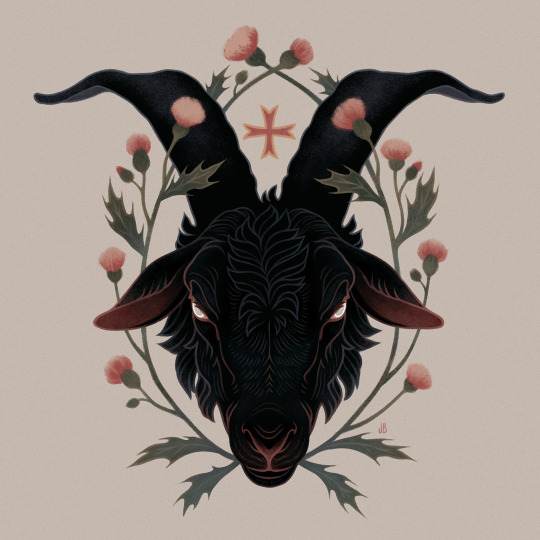
It wore a crown of thistle-down upon its wicked head.
28K notes
·
View notes
